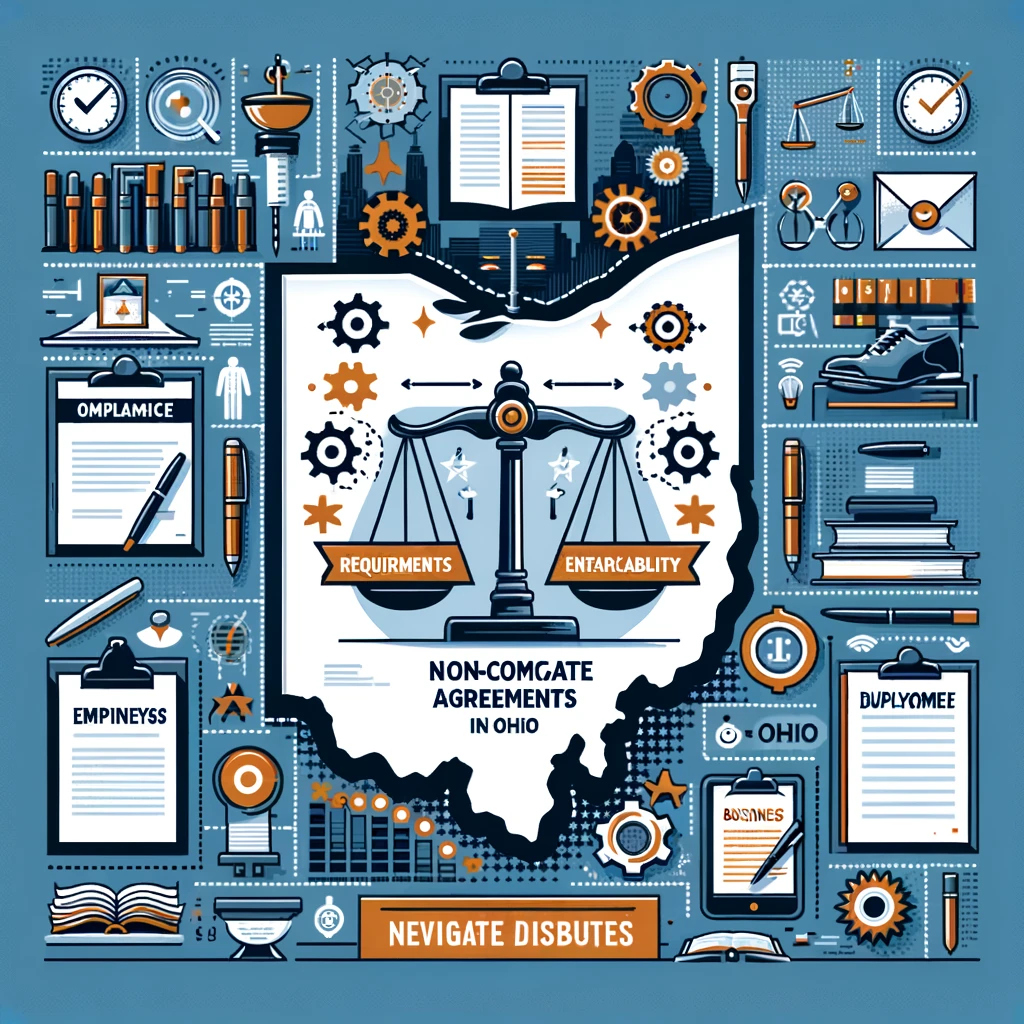Navigating Non-Compete Agreements in Ohio: A Comprehensive Legal Guide
In the competitive business landscape of Ohio, non-compete agreements have become a pivotal legal instrument for employers seeking to safeguard their proprietary information and maintain a competitive edge. These agreements, when executed properly, can protect a business’s interests while balancing the rights of employees. This guide delves into the nuances of non-compete agreements in Ohio, drawing on authoritative resources to provide a thorough understanding of their application, enforceability, and implications.

Understanding Non-Compete Agreements
Non-compete agreements, also known as restrictive covenants, are contracts wherein an employee agrees not to enter into or start a similar profession or trade in competition against the employer. The legal framework surrounding non-compete agreements in Ohio is designed to protect legitimate business interests while ensuring that such agreements are not overly restrictive on employees.
For foundational knowledge on non-compete agreements, Cornell Law School’s Legal Information Institute offers a broad overview of the legal principles governing these agreements.
The Ohio Legal Perspective
Ohio law requires that non-compete agreements be reasonable in scope, geography, and duration to be enforceable. The Ohio Revised Code does not explicitly regulate non-compete agreements, which means that judicial precedents play a crucial role in their interpretation and enforcement.
Scope: The agreement must not be excessively broad in prohibiting the employee's ability to work.
Geographical Limitation: Restrictions should be limited to areas where the employer actually conducts business.
Duration: Typically, the agreement should last for a period deemed reasonable to protect the employer’s interests without unduly harming the employee’s career prospects.
The Supreme Court of Ohio’s website may provide access to relevant case law and judicial opinions regarding non-compete agreements.
Drafting a Non-Compete Agreement in Ohio
Creating an enforceable non-compete agreement in Ohio necessitates a careful balance between protecting business interests and respecting the employee's right to work. Employers should consider the following steps:
Identify Legitimate Business Interests: Clearly define what the agreement aims to protect, such as trade secrets, confidential information, or client relationships.
Tailor the Agreement: Customize the scope, geography, and duration to the specific situation, ensuring that restrictions are no broader than necessary.
Provide Consideration: For current employees, offer something of value in exchange for signing the agreement, like a promotion or bonus.
Educational institutions like The Ohio State University Moritz College of Law may offer insights and resources on drafting legal documents and understanding the nuances of employment law.
Challenges and Considerations
The enforceability of non-compete agreements in Ohio is subject to scrutiny. Employers must navigate potential challenges:
Overbreadth: Agreements that are too restrictive in duration or geographical scope may be deemed unenforceable.
Public Policy: Ohio courts will consider the public interest, including the employee’s right to earn a livelihood.
Reasonableness: The agreement must strike a reasonable balance between the employer’s need to protect its interests and the employee’s right to work.
For in-depth legal analysis and resources, the American Bar Association provides extensive literature on non-compete agreements and their enforceability across different jurisdictions.
Navigating Enforcement and Disputes
In the event of a dispute, Ohio courts will evaluate the reasonableness of the non-compete agreement. Employers and employees alike should be prepared to address such disputes by:
Seeking Legal Counsel: Consult with attorneys who specialize in employment law to navigate the complexities of enforcing or contesting a non-compete agreement.
Mediation and Arbitration: Consider alternative dispute resolution methods to reach a mutually agreeable solution.
Understanding Remedies: Be aware of potential legal remedies, including injunctions and damages, that courts may order if the agreement is breached.
The Ohio State Bar Association offers resources and referrals for legal representation and advice on handling disputes related to non-compete agreements.

Create & Review Your Contracts 10x Quality and Ease
Lawyer-level AI handles all your contract needs, with real lawyers providing safeguarding support

Conclusion
Non-compete agreements in Ohio serve as a critical tool for employers to protect their proprietary interests while posing significant considerations for employees. By adhering to legal standards of reasonableness and focusing on clear, tailored agreements, parties can navigate the complexities of non-compete clauses effectively. Employers and employees are encouraged to leverage authoritative resources and seek professional legal advice to ensure that their rights and interests are adequately protected in these binding contracts.

